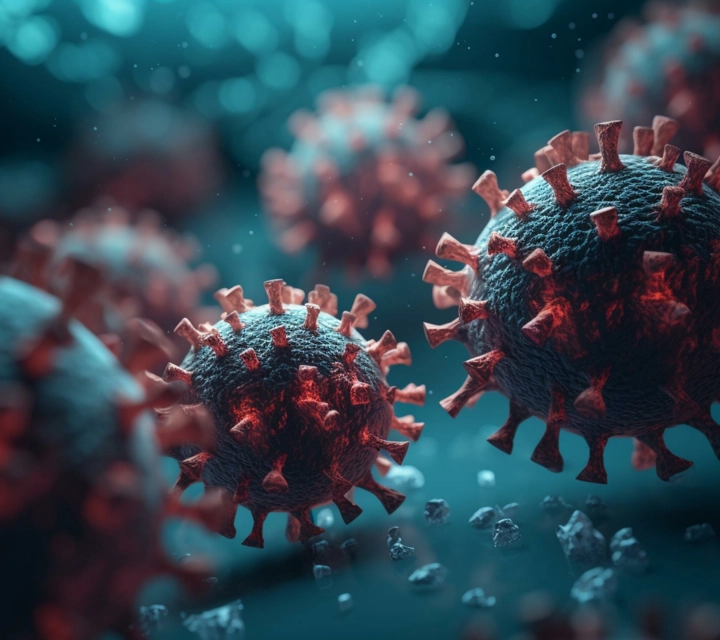Molnupiravir (Lagevrio) is an FDA emergency use authorized antiviral to treat mild-to-moderate COVID-19 in high-risk persons. Molnupiravir uses a mechanism commonly referred to as “error catastrophe” or “lethal mutagenesis,” an accumulation of mutations in the virus that eventually results in an inability to replicate; this differs from other drugs such as remdesivir or nirmatrelvir/ritonavir (Paxlovid), which rapidly shut down RNA or protein synthesis to cease viral replication (Tao, July 2021). Molnupiravir’s mutagenesis mechanism, coupled with lower effectiveness against severe disease outcomes in clinical trials data, has raised concerns about the drug’s potential to contribute to viral evolution during infection and hypothetical onward transmission of novel variants (Bernal, February 2022; Butler, January 2023; Sanderson, September 2023).
These factors were evaluated in a substudy of the PANORAMIC placebo-controlled randomized clinical trial focused on viral load dynamics and treatment-emergent mutations. In this substudy (n=577; median age, 58 years; 95% with ≥3 vaccine doses; recruited mean 2.5 days from symptom onset), molnupiravir exposure led to faster decline in viral load during the 5-day treatment course, compared to the placebo. Between days 5-14, however, VL decline was slower in the molnupiravir group resulting in ~2.5-fold longer half-life than in the placebo group and slightly higher VL at day 14; anti-spike antibody levels were also lower in the molnupiravir group at day 14. Many more mutations were observed across the genome in molnupiravir-treated participants, and these were highest among those who also demonstrated persistently positive VLs at 14 days. This included rare development of F490S mutation in the receptor binding domain (n=2 participants), which affects ACE2 binding affinity. The proportion of participants with cultivable virus post-treatment was low, however, and relatively similar between groups (6/117 [5%] molnupiravir versus 3/119 placebo [2.5%]).
In summary, 5 days of molnupiravir therapy in an older, vaccinated population demonstrated good initial antiviral effect yet was associated with delayed viral clearance and development of mutations, occasionally in the setting of persistent live virus with potential for transmission. The study authors suggested a 10-day course might circumvent VL persistence issues, though this has not yet been studied. Regardless, these findings, coupled with poorer effectiveness data in other studies, support preferential use of other first-line antivirals to treat COVID-19. Use of short-course molnupiravir monotherapy in scenarios such as heavily immunocompromised persons with predisposition to protracted infections and treatment-emergent mutations may be less desirable (IDWeek, December 2023; Li, January 2024).

